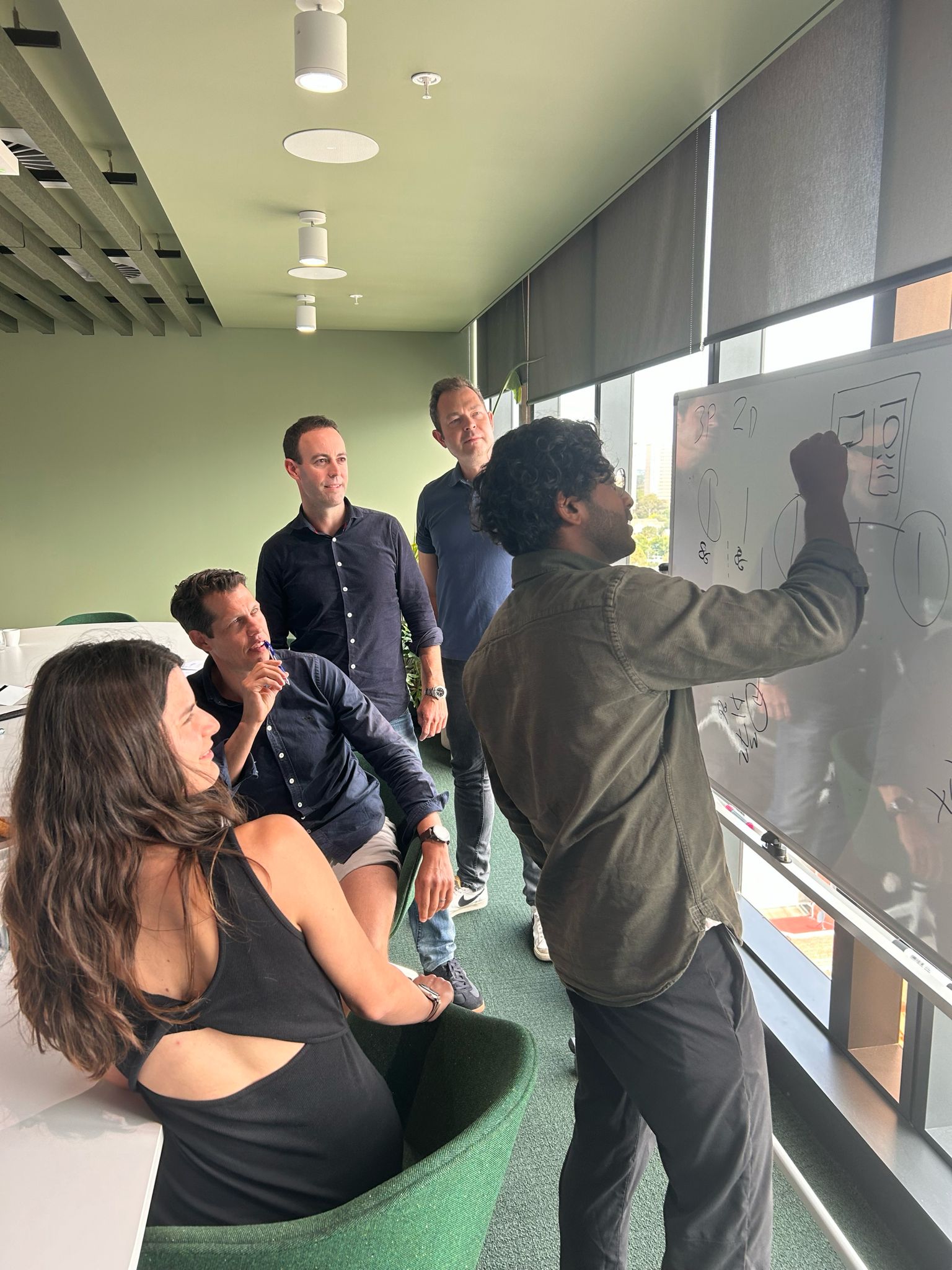Thank you! Your submission has been received!
Oops! Something went wrong while submitting the form.

Mayfly collaborated with the MUCUDU team to build a low-code MVP for their hospitality tech platform, which includes loyalty management, peer-to-peer monetary gifting, and Tab functionality.
Beyond the standard integrations with Stripe, Apple, and Google for login and payments, we incorporated advanced integrations with Point of Sale systems like Doshii and AI-driven recommendations that personalize the dining experience.
Automation has been a driving force in innovation for decades, transforming industries by reducing inefficiencies and empowering businesses to scale. From the assembly lines of the Industrial Revolution to today’s sophisticated AI tools, automation has continually pushed boundaries. But now, we’re on the cusp of a new era—one powered by AI agents.
AI agents are not just another step forward in automation; they represent a seismic shift. These intelligent, autonomous systems promise to redefine how businesses operate, how people work, and even how we interact with technology. Let’s explore their role in the future of automation and why they’re poised to become the backbone of the next industrial revolution.

Traditional automation systems, whether robotic arms or SaaS workflows, excel at repetitive tasks but lack adaptability. They follow predefined rules, requiring human intervention when something unexpected arises.
AI agents, on the other hand, combine intelligence and autonomy. They don’t just execute tasks—they understand goals, make decisions, and adapt to changing circumstances.
For example:
This leap in capability enables AI agents to not only complement human efforts but also handle complex, dynamic tasks previously thought impossible for machines.
The role of AI agents in automation is all about efficiency—doing more with less, faster than ever before. Here’s how they deliver transformative value:
AI agents excel at taking over repetitive and time-consuming tasks, freeing up human workers to focus on creativity, strategy, and relationship-building.
For example, in healthcare, AI agents can handle administrative burdens like patient scheduling, billing, and insurance claims, allowing medical professionals to spend more time with patients.
Unlike traditional systems that break down when variables shift, AI agents can adapt in real time. They use machine learning to refine their behavior and make context-aware decisions.
Imagine a logistics AI agent rerouting deliveries based on real-time traffic or weather data—something static automation systems simply cannot do.

AI agents don’t wait for instructions. They detect issues, identify solutions, and execute tasks autonomously. This proactive approach reduces downtime and boosts overall productivity.
Take Relevance AI’s Bosh, for example, which helps sales teams by independently researching prospects, reaching out, and scheduling meetings—all without waiting for a human to initiate these tasks.
AI agents are already making waves across multiple sectors. Here’s how they’re shaping the future of automation in key industries:
AI agents are revolutionizing how hospitality businesses operate by streamlining customer interactions and backend processes. For example:
From assisting in patient triage to automating insurance claims, AI agents are transforming healthcare by reducing administrative burdens and improving patient care.
AI agents like Brico are automating compliance processes for fintech companies, reducing the time and cost of regulatory tasks like license applications and renewals.
AI agents like Fairgo streamline the hiring process by managing job applications, conducting initial screenings, and even providing hiring recommendations—all autonomously.
As AI agents become more prevalent, the future of work will involve hybrid teams where humans and AI agents collaborate seamlessly. This shift will redefine roles and responsibilities:
Hybrid teams will not only boost productivity but also unlock new opportunities for innovation as workers are freed from mundane tasks.
While the potential is immense, adopting AI agents isn’t without challenges:
Despite these hurdles, the benefits far outweigh the challenges, making AI agents a worthwhile investment for forward-thinking companies.
AI agents represent the future of automation. Their ability to think, act, and adapt autonomously positions them as the next big leap in efficiency and innovation. As industries continue to explore their potential, those who embrace AI agents now will be the leaders of tomorrow.
At Mayfly Ventures, we specialize in helping businesses build AI agents that solve real problems and unlock new opportunities. If you’re ready to bring the power of AI agents to your organization, let’s talk.
.webp)

We’re a team of engineers, designers and venture builders. We partner with industry experts to build and launch AI and software ventures.
We combine your insight and network with our proven playbook and venture building expertise to turn bold ideas into globally scalable products.
We back ventures with capital. With skin in the game our support goes far beyond deliverables, we’re an invested partner in your success.
Here to support from idea conception, to commercialisation and well beyond launch.
You're an industry insider with a deep understanding of the pain points and inefficiencies in your sector which are prime for AI disruption.
You have the network to access early adopters locally with the conviction to scale globally.
You are looking for a partner experienced in launching tech ventures to guide you the process of building, launching and scaling an Al platform to transform your industry.

